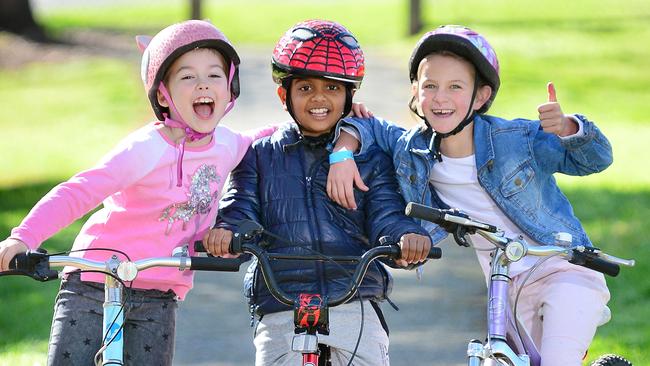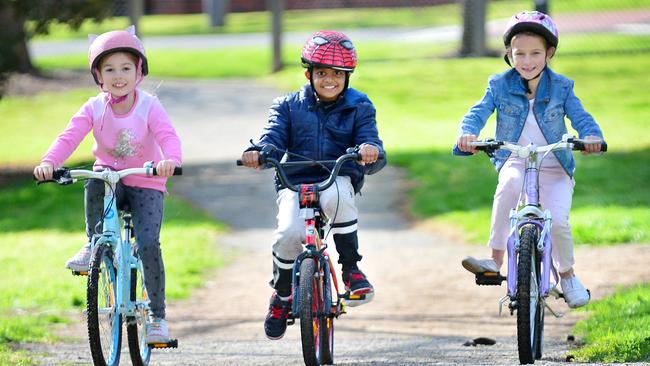Playful fun can help children gain confidence, get active
PARENTS looking to help their child get active should encourage them to take up fun, playful physical activities, a new study has found. See which activities help get kids going and more tips from experts.

News
Don't miss out on the headlines from News . Followed categories will be added to My News.
- How to raise happy, confident boys
- The secret to building resilient kids
- Hands-on parenting is what helps kids
THE more time kids spend paddling, climbing, skating, scooting and riding bikes, the more likely they are to be more active overall, a new study shows.
Such playful fun builds up kids’ confidence in their physical skills, which then spurs them on to try other activities and sports, according to a new Deakin University study.
Dr Lisa Barnett from the Institute for Physical Activity and Nutrition said the key to getting kids moving was to expose them to as many different play-based activities as possible.
She surveyed 230 Victorian children aged five to eight and found a link between active play and levels of physical activity among the older kids.

Those who considered themselves good at these types of play were more likely to be doing more minutes of daily movement.
“We should look at it in terms of play rather than exercise,” Dr Barnett said.
“Young children think that just having a go makes them better at it. While there is value in organised sport, there is also great value in doing different things in a fun context — unstructured play on a bike or climbing in the backyard,” she said.
“Even trying something once at a birthday party as a special treat can be beneficial. None of the children we surveyed tried something and gave up because they were no good,” Dr Barnett said.
“The key is for them to just have a go. We don’t want children to think they are no good and give up participating because they are not used to trying something new.”
“Children need exposure to, and competency in, physical activities that can continue to be performed into adulthood,” Dr Barnett said.



